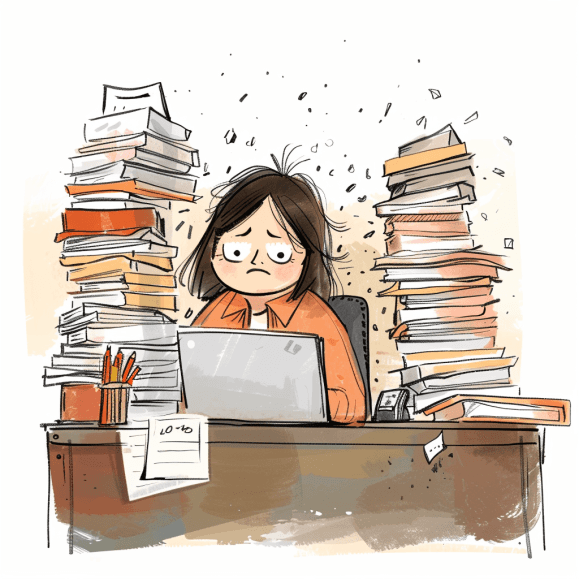Confronting HR Burnout: Understanding Triggers
May 9, 2024
Being a Human Resources professional comes with a lot of underappreciation. In times of economic downturns, HR professionals represent their organizations and execute tough decisions while handling multiple day-to-day responsibilities against employee complaints.
Excessive Workload
Cause: HR professionals frequently take on various tasks simultaneously, from hiring to benefits administration. An overbearing workload can quickly result in burnout.
Solution: The key is prioritizing tasks, delegating when feasible, and establishing attainable goals. Breaking down the mountain of tasks into manageable hills makes the journey less daunting.
Emotional Labor
Cause: HR is often at the forefront of managing employee issues and conflicts. Dealing with others' emotional needs can sap even the most resilient professional's internal resources.
Solution: Promoting self-care routines, providing emotional support, and offering training on handling emotional stress can empower HR staff to manage their emotional labor more effectively.
High Expectations and Pressure
Cause: HR professionals are under immense pressure to meet compliance, resolve disputes efficiently, and contribute to company progress—all at once.
Solution: Establishing clear communication about workload limitations and setting boundaries can alleviate this pressure. Enlisting support from leadership can also provide a necessary buffer against overwhelming expectations.
Lack of Autonomy
Cause: Micromanagement or inflexible procedures can impede an HR professional's freedom to act, leading to irritation and disengagement.
Solution: Trusting HR staff to make informed decisions, empowering their expertise, and offering flexibility can help nurture a sense of autonomy and job satisfaction.
Constant Change and Uncertainty
Cause: HR constantly adjusts to policy updates, organizational modifications, and evolving industry standards. This persistent uncertainty demands a high level of adaptability and can be exhausting.
Solution: Ensuring HR staff has access to change management training, fostering a culture of resilience, and building a supportive working environment are pivotal steps in mitigating change-related stress.
5 Signs of Burn Out Among HR Professionals
Burnout sneaks up quietly but leaves loud repercussions. HR professionals, the backbone of workplace equilibrium, are no exception. Let’s delve into five telling signs that an HR pro might be hitting the burnout wall:
The Exhaustion Epidemic
Fatigue is the flagbearer of burnout. It's a red flag when HR folks feel physically and mentally spent as a default state. Take heed if you’re in HR and yearning for naps or staring blankly at “simple” spreadsheets.Dread and Apathy Duo
When the thought of work triggers a visceral sense of dread, it’s time to pause. Those in HR experiencing burnout often encounter a steep decline in motivation, making it an uphill battle to engage with daily tasks. It may be an alarm bell if you're not looking forward to initiatives you once championed.The Sleep Struggle
Watch your sleep patterns; they're telling. Difficulty snoozing, interrupted sleep, or feeling like a human pinball at night? These sleep disturbances suggest burnout is creeping up on you. HR roles demand alertness—lack of sleep is not only a signal; it affects job performance.Appetite on a Rollercoaster
Neglected meals or random snack attacks could both indicate burnout. HR professionals often juggle multiple plates, but it's worth noting if your plate usage is erratic. Whether it's a disappearing appetite or finding solace in comfort food, your eating habits reflect your state of mind.Cynicism and Snappiness
Lastly, burnout may be at your door if you’re in HR and find your patience wearing thin more rapidly than usual or a cloud of cynicism has replaced your sunny disposition. Being the office mediator requires a cool head; irritability can compromise effectiveness.
Recognize these symptoms? It might be time to recharge your batteries and reconnect with your why. Remember, taking care of HR is just as important as HR taking care of everyone else.




